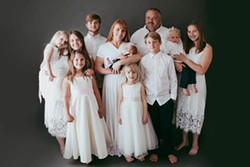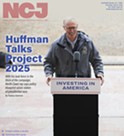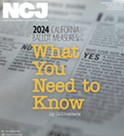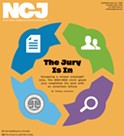'I Wish I Had Been Vaccinated'
A Humboldt family didn't believe in the virus or the vaccine. Then they got COVID.
By Thadeus Greenson [email protected] @ThadeusGreenson
Jonathan Weltsch leaves St. Joseph Hospital on July 26, 19 days after he was admitted with COVID-19.
[
{
"name": "Top Stories Video Pair",
"insertPoint": "7",
"component": "17087298",
"parentWrapperClass": "fdn-ads-inline-content-block",
"requiredCountToDisplay": "1"
}
]
For more than a year, Jonathan Weltsch dismissed COVID-19 as the flu. When vaccines became available, the 43-year-old local businessman spent months decrying them as more dangerous than the virus itself and urging loved ones not to get them. In short, he thought the pandemic was "kind of a hoax," according to his wife, Sarah.
That all changed last month when the virus tore through the Weltsches' household — infecting Jonathan, Sarah and their eight children who live at home, from the 2 month old to the 16 year old — and left Jonathan so sick he found himself lying on the hospital floor as he waited to be admitted to St. Joseph Hospital, unable to breathe and thinking he was going to die.
"In hindsight, I wish I had been vaccinated," Jonathan Weltsch wrote in an email to the Journal shortly after he was discharged from the hospital after a 19-day stay that nearly saw him intubated and put on life support multiple times. He was still dependent on supplemental oxygen and unable to hold a conversation without becoming winded, so he typed. "COVID sucks."
Fearing he still has a long recovery ahead before he can breathe on his own without the help of an oxygen tank, much less resume the 12-hour days he regularly put in for his fence-making company, Jonathan Weltsch has now joined the nation's growing ranks of COVID deniers and vaccine skeptics — most of them politically conservative — who have been touched by the virus and are now urging friends and family to get vaccinated.
"Go get the vaccine," he told the Journal via email when asked what advice he'd give the local community. "Whatever the side effects are, it's nothing compared to the pain of not being able to breathe."
From the outset of the pandemic, Amanda Devons, 71, took it very seriously. A lymphoma survivor with a compromised immune system, Devons says she followed the news closely and tried to follow public health guidelines meticulously. She also grew increasingly concerned about Jonathan, the second oldest of her four children, and the only one to still live in Humboldt County.
Jonathan didn't have any underlying conditions and was physically active, working hands-on at his company the Fence Doctor, which he'd taken over from his brother David, who took it over from their father — but he was also overweight. Most concerning, she says, he didn't seem to be following public health guidelines.
"The whole isolating thing wasn't happening," Devons says, explaining that in addition to the inherent challenges in keeping a family with nine children socially isolated, there were also times when Jonathan would roll up to her house in his truck with some of his employees inside and no one masked.
So Devons kept her distance from the family. Occasionally she'd get together with them outdoors. Once, she says, she showed up in a head-to-toe Tyvek suit, in part to make the point that she was taking this seriously and they should, too. Most of all, she says she hoped for the development of a safe and effective vaccine, even self-publishing a children's book, I Can't Wait to See You, about a grandmother missing her grandchildren that ends happily with her getting vaccinated.
But when the vaccine rollout began locally earlier this year, as Devons showed up at local clinics looking to see if they had extra doses, it became clear Jonathan wasn't interested. Devons says he offered a range of reasons, everything from not wanting the government to steal his DNA to feeling like he'd previously had COVID and thus didn't need to be vaccinated. She didn't know when he was being serious and when he wasn't, or how her son, whom she describes as scientifically and mechanically minded, saying he reads Popular Mechanics and Popular Science magazines regularly, could be so vaccine averse. But she also knew pressing wouldn't help.
"Arguing with your adult kids doesn't do any good," she says.
Others did push back when Jonathan posted memes on Facebook minimizing the virus and impugning the vaccine, but never seemed to get any traction changing his mind or even starting a real conversation. When the Journal asked Jonathan about his vaccine hesitancy, he wrote: "I was always taught to not use experimental drugs, and the vaccine I felt was experimental and I was being told to take it. I didn't want to and told others not to."
So even as she felt more protected by her vaccination, Devons would grow "extremely worried thinking about Jonathan." And that sense of dread only increased in June, when the state lifted health and safety restrictions, and dropped its mask mandate.
"He told me a few times, 'COVID is over,' and I'd say, 'No, Jonathan, it is not,'" she recalls.
Then Devons got the call she'd dreaded: Jonathan — whom Devons also describes as a kind, gregarious man, the type of person who drops everything to help a friend in need and makes sure to bring extra food and rafts to the river to share with anyone else who might be there — had tested positive for COVID-19. So had his wife and children.
"I was just so crushed when I heard," she said.
Sarah Weltsch, for her part, says she thought COVID was "really scary" when it first hit the United States, and that she would watch videos on YouTube and Facebook featuring various doctors talking about the virus in an effort to educate herself. She stocked up on vitamin C, zinc and tonic water, having heard they could help the body fight off the virus or treat symptoms (none of these claims have been proven by reputable scientific study), and bought a pulse oximeter — a small device that measures blood-oxygen levels.
But as the pandemic droned on, she says she grew more comfortable and Jonathan thought the "virus was kind of a hoax," that it was just "the flu and not that big of a deal." She says she ultimately came to feel that she and the family were all pretty healthy — "I eat right, I exercise," she says — and even if they got the virus, it wouldn't be that bad.
Then, in late June, the family hung out with with a friend who'd been exposed to the virus, Sarah says, and on June 27 one of their children had a mild fever. They got an over-the-counter COVID-19 test and it came back positive. The following day, tests confirmed the entire family — from 2-month-old Luke to 43-year-old Jonathan — had the virus. But they felt fine, that is until July 1, when Sarah says, "every one of us started showing symptoms within an hour of one another."
"It just spread like wildfire," she says, adding that their illnesses ranged from sore throats and flu-like symptoms to nausea, diarrhea and muscle pain.
The constant was that the symptoms were progressively worse in each family member based on age, with their 16-year-old daughter sicker than her siblings and Jonathan sickest of all.
"Almost all of the kids recovered within a few days," Sarah says. "Mom and dad — me and Jonathan — got it a lot worse."
Sarah says her symptoms at first just felt like a 24-hour bug and even waned the next day. But then they returned with a vengeance: She lost her sense of smell and taste, had a sore throat and a dry cough, describing the feeling as similar to an asthmatic reaction. Each day, they grew worse until July 8, when both Sarah and Jonathan struggled to breathe.
"The shortness of breath was the hardest thing I've ever experienced in my life," Sarah says, saying it led to panic attacks that only made it harder to catch her breath. "I was scared to sleep because what if you don't get enough oxygen and you don't wake up? It was really terrible to think, 'I have all these children I want to be here and raise, and I can't breathe.'"
She pauses a moment on the phone before continuing.
"It was just not being able to get a full breath," she says. "My chest was just tight and I couldn't get full breaths and even if I could, it just didn't' feel like I got a full breath, enough oxygen."
But as bad as Sarah felt, she knew Jonathan was worse. They went to St. Joseph Hospital, where doctors performed some tests and prescribed antibiotics before sending them home to recover, saying they simply weren't sick enough to be admitted. Sarah says they returned home, where they monitored Jonathan's blood-oxygen saturation levels with the pulse oximeter. A normal reading is typically between 95 and 100 percent; when Jonathan dipped below 60 percent, he went back to the hospital.
The ensuing days saw Jonathan fighting for his life and St. Joseph Hospital's medical staff scrambling to save him. When his oxygen levels dropped to 38 percent, Sarah says he was moved to intensive care, where he breathed through a BiPAP mask that forced oxygen-rich air into his lungs. For four days, Sarah says doctors weighed whether to intubate Jonathan and put him on a ventilator, knowing it was a last resort and most people put on the life support measure do not survive.
"He held at that spot for four days," Sarah says. "They said his heart could have failed right then."
Sarah herself wasn't there. COVID restrictions meant the family couldn't visit, so they would instead send him video messages and texts.
Then, slowly, his condition began to improve and hold, even as doctors reduced the amount of oxygen being pushed into his lungs. On July 20, he was moved out of the ICU. He posted to Facebook: "Hopefully off mask shortly. Praise Jesus for medicine and please get vaccinated."
Six days later, Jonathan returned home on his and Sarah's 20th anniversary, which was also her 40th birthday. "It was the best present I could have gotten — he's here on Earth and he's with me," she says.
Back home, Jonathan Weltsch doesn't know what his future holds. He's still dependent on supplemental oxygen more than a month after he was first infected with the virus and the prospect of resuming long days of physical labor seems a long way off.
"My recovery is going to take time," he says, adding that he'll know more after follow-up appointments.
Sarah says she fears it may be a long time before her husband can breathe freely without an oxygen tank or recovers fully. She says she tried to talk to his doctors and nurses when he was discharged but couldn't get much information about what she should expect moving forward.
"They're just really busy right now," she says, noting that Jonathan was being discharged as local COVID-19 cases and hospitalizations surged, with a then-record 74 new cases confirmed the day he left the hospital. "They have a lot of patients."
But what the Weltsches do know is they want to spare other families the experience they've had. Sarah got vaccinated July 23 and Jonathan has said he'll do the same as soon as his body is clear of anti-viral medications and the doctors say it's OK. In the meantime, the Weltsches want the local community to know what they've been through.
"We should have gotten that vaccine and made sure we were covered," Sarah says. "This is terrible and now he's trying to get everyone in the world to just get vaccinated."
Devons, who says she made and dropped off cards for her son and his nursing staff daily throughout his 19-day hospitalization, says she didn't broach the topic of vaccines when she first spoke to Jonathan after his release from the ICU.
"I didn't bring it up," she says. "But he told me, 'I wish I had and I've told 20 friends now they should get vaccinated.' He's convinced three of them. I just started crying."
And as local case numbers surge, fueled by the now widespread Delta variant, which health officials believe is what infected the Weltsches, Sarah says she wants the community to know COVID-19 isn't the flu and that it doesn't only threaten the old or frail.
"Like I said, we never thought we could get this sick," she says. "But it doesn't discriminate. COVID chooses who it wants."
She pauses a moment. "It was really, really intense," she says.
Thadeus Greenson (he/him) is the Journal's news editor. Reach him at 442-1400, extension 321, or [email protected]. Follow him on Twitter @thadeusgreenson.
Comments (15)
Showing 1-15 of 15
more from the author
-
Huffman on Thursday Night Talk: Harris is Dems' Best Chance at Presidency
- Jul 18, 2024
-
The Crises of Our Time
- Jul 18, 2024
-
Huffman Talks Project 2025
With his task force in the thick of the campaign, North Coast rep says policy blueprint raises stakes of presidential race
- Jul 18, 2024
- More »
Latest in News
Readers also liked…
-
Through Mark Larson's Lens
A local photographer's favorite images of 2022 in Humboldt
- Jan 5, 2023
-
'To Celebrate Our Sovereignty'
Yurok Tribe to host gathering honoring 'ultimate river warrior' on the anniversary of the U.S. Supreme Court ruling that changed everything
- Jun 8, 2023
































